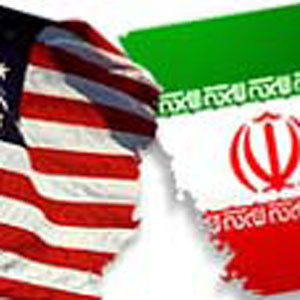Iran's Diplomacy vis-à-vis Violence and Mischief

More than three decades have passed since the United States started its nonstop, yet failed, strive to stifle the Islamic Republic’s progress. While the core of Washington’s anti-Iran doctrine has not changed throughout these years, the tactics have changed guise. Typically, the US has implemented combinatory tactics against Iran, that is, simultaneous pressure against Iran from different directions. For example, Egypt after the revolution against Mubarak has expressed interest to resume diplomatic relations with Iran. However, in a hasty measure, Egyptian security officials prevented a scheduled visit to Iran by a religious delegation.
In the meantime, Saudi Arabia has taken on an unfriendly tone against Iran in its diplomatic rhetoric, insofar that it raised the concern of Pakistanis and urged Islamabad to mediate between Tehran and Riyadh. In spite of the diplomatic line-up between the US and its allies on the one hand, and Iran on the other, the Israeli regime has bought its sixth nuclear submarine from Germany. Interestingly, the government of Germany has agreed with a 135 million dollar aid to Israel to purchase the submarine! In the meantime, Saudi Arabia and Qatar have offered India to supply it with oil in case of non-purchase from Iran [due to sanction-induced technical difficulties in making payments.] In fact, security, military, political and economic pressures against Iran have stepped up.
Some observers link the increasing pressures on Iran to the revolutions in the Arab countries since Washington and key NATO members are worried that the revolutions -inspired by the [1979] Islamic Revolution of Iran- take on anti-American and anti-Western qualities; nevertheless, the Islamic Iran's cultural, political and propagandistic policies have been such that nations of the region, whatever the policies of their governments, have looked up to Tehran and the Islamic Republic. Nonetheless, as a craft and an art, diplomacy should not be overlooked. Iran's active diplomacy should be calibrated to deescalating tensions and developing effective policies to decrease threats. Governments trying to double-cross Iran should know that adverse action will only serve the interests of Israel and the US. These countries should have learnt their lesson from the events in Tunisia and Egypt. No force, even the full support of the US and West, cannot withstand the wave of masses calling for liberation. Long-term interests of regional states militate that they do not rely on shaky partners. The cost of foreigners’ presence in the region is such high that it diminishes the prospect of their permanent presence in the region.
Instead of following the diplomacy of reliance on foreign support, regional states should give modification of their ties with neighbors a chance. The past three decades should have proved the neighbors that except for the Zionist Regime, Iran has no animosity with any other country, but this does not mean that if a country tries to play a role in the United States’ anti-Iran game, Tehran will remain silent.
The best option is to share the opportunities and repel common threats.

